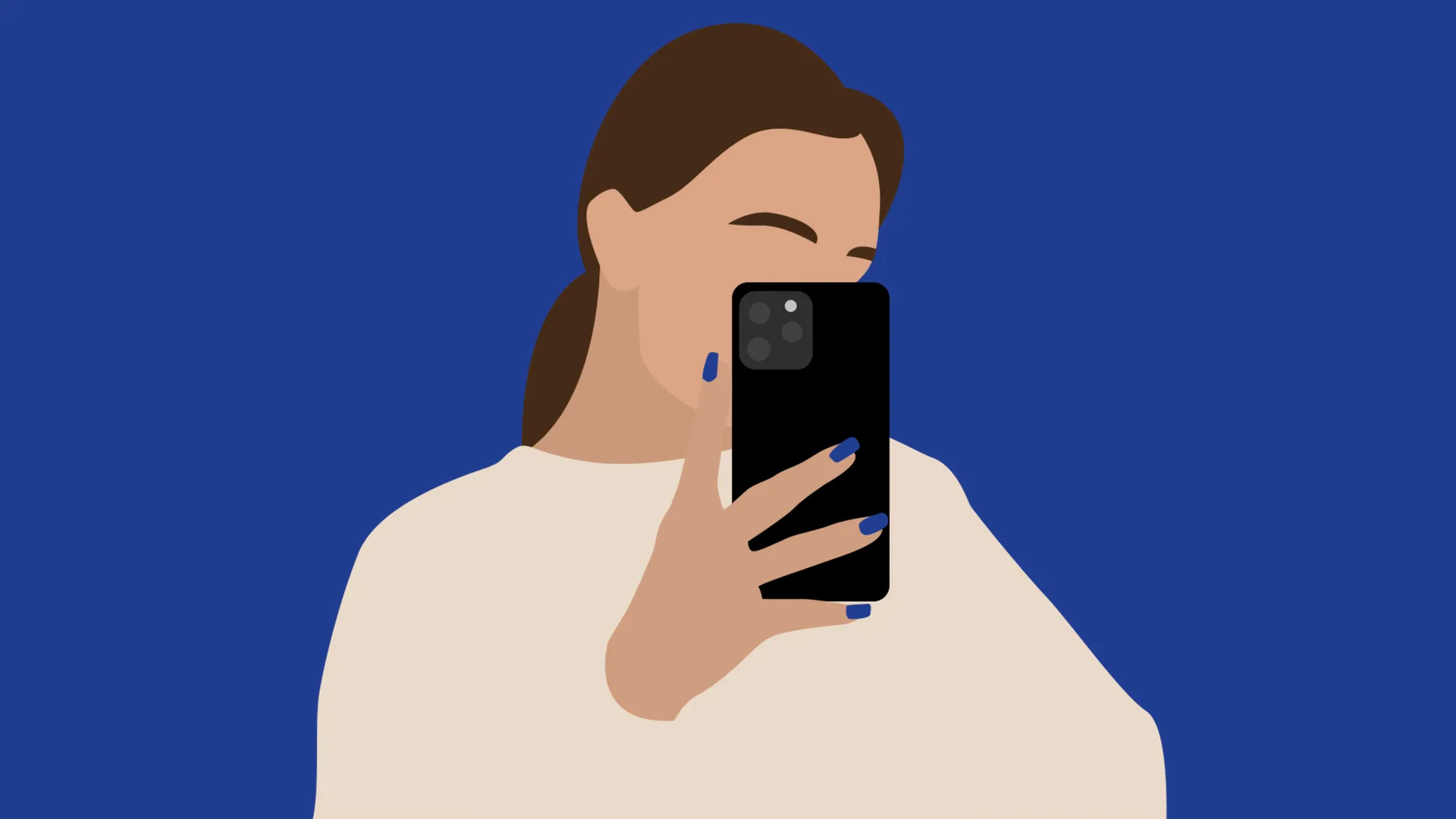As you navigate challenges with your mental health or care for a loved one facing difficulties, understanding the distinctions between conditions can be critical.
Two terms often confused are psychosis and schizophrenia. While schizophrenia is a chronic mental health condition, psychosis refers to a set of symptoms where a person loses some contact with reality.
Not all people with schizophrenia experience psychosis, and psychosis can occur in other illnesses as well.
Educating yourself about these distinct disorders and their symptoms will allow you to better support yourself or your loved one on the path to wellness.
Speaking with a mental health professional to determine an accurate diagnosis and explore treatment options is key. Through a combination of medication, therapy, lifestyle changes, and community support, many people with schizophrenia or who experience psychosis can live healthy and fulfilling lives.
1. Psychosis Is A Symptom, Schizophrenia Is A Diagnosis.
Psychosis refers to a loss of contact with reality, whereas schizophrenia is a chronic mental health condition that causes psychotic episodes. Psychosis can present as delusions, hallucinations, or disordered thinking and speech.
These symptoms may come and go. Schizophrenia, on the other hand, is a long-term illness that often causes psychotic symptoms like delusions, hallucinations, and disordered speech.

With schizophrenia, psychotic symptoms tend to persist and can worsen over time without treatment. Schizophrenia also frequently causes issues with motivation, speech, emotional expression, and motor skills.
The symptoms of schizophrenia tend to be more severe and persistent than in a temporary psychotic episode. Schizophrenia requires ongoing treatment with antipsychotic medications and therapy.
In short, psychosis represents a set of symptoms, while schizophrenia is a diagnosed mental disorder. Not all people who experience psychotic symptoms will receive a diagnosis of schizophrenia.
Psychotic symptoms can occur in other conditions like bipolar disorder or in temporary states induced by drug use, medication interactions, or sleep deprivation.
A mental health professional must evaluate the symptoms and medical history to determine an accurate diagnosis and recommend an effective treatment plan.
2. Psychosis Involves Losing Contact With Reality, Schizophrenia Is A Mental Illness.
Psychosis refers to a temporary loss of contact with reality that can involve delusions (false beliefs) and hallucinations (seeing or hearing things that aren’t really there).
Schizophrenia is a serious mental disorder where people interpret reality abnormally. Schizophrenia is usually characterized by symptoms like delusions, hallucinations, disorganized speech, or catatonic behavior.
While psychosis can be a symptom of schizophrenia, not all people with psychosis have schizophrenia. Psychosis can also occur due to sleep deprivation, dementia, bipolar disorder, or major depression. On the other hand, schizophrenia is a distinct mental illness that requires diagnosis and long-term treatment.
If someone experiences psychosis, it’s critical they see a doctor right away. Early diagnosis and treatment of the underlying condition can help prevent severe complications. Treatment options for psychosis may include medication, psychotherapy, hospitalization, or other interventions tailored to the individual and specific diagnosis.
Schizophrenia, however, has no cure and requires lifelong management. Treatment focuses on reducing symptoms and preventing relapse through antipsychotic medications, psychotherapy, rehabilitation, and social support. With proper treatment and management, many with schizophrenia can live independently and pursue meaningful life goals.

The key distinction is that psychosis is a temporary mental state, while schizophrenia is a chronic mental illness that causes a range of symptoms, including psychosis. Recognizing the differences between these two conditions can help ensure prompt and appropriate treatment.
3. When Does Psychosis Become Schizophrenia?
When psychotic symptoms become severe, long-lasting, and disruptive, the diagnosis may shift to schizophrenia. The line between psychosis and schizophrenia can be blurry, but there are some key differences to consider:
Duration and persistence of symptoms
Psychosis typically develops rapidly, within a couple of weeks, and symptoms may subside with treatment. Schizophrenia is a chronic mental illness where symptoms persist for at least 6 months.
Presence of delusions, hallucinations, and disordered thinking
In schizophrenia, delusions, hallucinations, and severely disordered thinking and speech are common and ongoing. These symptoms significantly disrupt perception, cognition, and behavior.
Deterioration of functioning
Schizophrenia causes major problems with work, relationships, and self-care. Psychosis may temporarily impact functioning, but a person can typically resume normal activities once the psychotic episode has resolved.

Additional criteria
The diagnosis of schizophrenia also requires at least two of the following symptoms: abnormal motor behavior, negative symptoms like lack of emotion or social withdrawal, or disorganized speech and behavior. These additional symptoms are not present in a brief psychotic episode.
4. Psychosis Can Be Brief Or Long-lasting, and Schizophrenia Tends To Be Chronic Or Recurrent.
Psychosis tends to be an acute, temporary mental health condition, while schizophrenia is a chronic, long-term mental illness.
Duration
Psychosis episodes are often brief, lasting from a few days to a few months. The symptoms tend to go away once the underlying cause has been addressed or resolved. In contrast, schizophrenia is a lifelong condition, though the severity of symptoms may wax and wane or improve with proper treatment and management.
Schizophrenia requires ongoing treatment and management to control symptoms and prevent relapse. Treatment options include antipsychotic medications, psychotherapy, social skills training, rehabilitation, and hospitalization during acute psychotic episodes. Lifestyle changes, coping strategies, and a strong support system can also help manage schizophrenia.
5. Psychosis Can Be Temporary, While Schizophrenia Is A Long-term Condition.
Psychosis refers to a temporary loss of contact with reality, while schizophrenia is a chronic, long-term mental health condition. Psychosis can last for a few weeks to several months, whereas schizophrenia requires lifelong treatment and management.
Duration
The key difference between psychosis and schizophrenia is duration and severity. Psychosis typically has a sudden onset, lasts a limited time, and symptoms tend to fluctuate in severity. Schizophrenia, on the other hand, is a persistent mental illness where symptoms continuously interfere with thinking, emotions, and behavior. While psychosis may develop into schizophrenia, psychosis itself is temporary.
Causes
Psychosis can have several potential causes, including drug misuse, alcohol withdrawal, sleep deprivation, severe stress, or medical conditions like dementia or bipolar disorder. In some cases, the underlying cause of psychotic symptoms is unknown or idiopathic. Schizophrenia, however, is a diagnosable mental disorder believed to result from a combination of genetic, biological, environmental, and psychological factors.
Treatment
Treatment for psychosis focuses on managing symptoms and determining the underlying cause. This may involve medication, therapy, reducing stress, and abstaining from alcohol or drugs. Treatment for schizophrenia, on the other hand, centers around long-term management using antipsychotic medication, psychosocial interventions, lifestyle changes, and community support services. Hospitalization may also be required during acute psychotic episodes for either condition.
6. Psychosis May Be Triggered By Stress Or Substance Use, While Schizophrenia Has A Gradual Onset.
Psychosis and schizophrenia are two distinct conditions, though they share some similar symptoms. The key difference lies in their causes and progression.

Psychosis May Develop Rapidly
Psychosis refers to a loss of contact with reality that can develop rapidly. It is usually temporary but severe and triggered by an identifiable cause, such as:
- Extreme stress or trauma
- Lack of sleep
- Substance use (e.g. hallucinogens)
- Medical conditions like dementia or bipolar disorder
The symptoms of psychosis, including delusions, hallucinations, and disordered thinking, emerge suddenly and may last for a few hours to several weeks. With treatment and removal of the triggering factor, most people with psychosis can recover fully.
Schizophrenia Has A Gradual Onset
In contrast, schizophrenia is a chronic mental illness with a gradual onset of symptoms, usually in late adolescence or early adulthood. The exact cause of schizophrenia is unknown but believed to involve a combination of genetic, biological, environmental, and psychological factors.
Symptoms tend to develop slowly over months to years and include hallucinations, delusions, disordered thinking and speech, limited emotional expression, and loss of motivation or interest in everyday activities. Unfortunately, schizophrenia currently has no cure and requires lifelong management with medication and therapy.
While psychosis and schizophrenia are distinct conditions, early diagnosis and treatment of either one is critical to improving outcomes and quality of life.
Consulting a mental health professional as soon as symptoms appear can help determine the underlying cause and appropriate course of treatment.
7. Psychosis Is Not A Formal Diagnosis, Schizophrenia Is.
Psychosis refers to a loss of contact with reality, while schizophrenia is a chronic mental disorder characterized by psychosis. Psychosis can be a symptom of schizophrenia, but also other mental health conditions.
Schizophrenia is a diagnosable mental illness.
Schizophrenia is a diagnosable mental illness characterized by delusions, hallucinations, disorganized speech or behavior, and impaired cognitive ability.

To receive a schizophrenia diagnosis, a person must meet the criteria in the Diagnostic and Statistical Manual of Mental Disorders (DSM-5). A schizophrenia diagnosis requires experiencing psychotic symptoms for at least 6 months and impaired functioning for a significant period of time.
Psychosis alone is not a formal diagnosis.
Psychosis refers to a temporary loss of contact with reality, often characterized by delusions, hallucinations, and confused thinking or speech.
Psychosis can be caused by a variety of conditions, including schizophrenia, schizoaffective disorder, bipolar disorder, severe depression, substance use, dementia, and other medical conditions.
Experiencing a brief period of psychosis does not necessarily warrant a diagnosis of schizophrenia or any other mental illness on its own.
8. Psychosis Is Caused By Various Factors, While Schizophrenia Has Genetic, Environmental, And Neurochemical Factors.
Psychosis refers to a temporary loss of contact with reality that can be caused by a number of factors. Schizophrenia, on the other hand, is a chronic mental disorder caused by a combination of genetic, environmental, and neurochemical influences.
Genetics
Schizophrenia has a strong hereditary component and tends to run in families. Having a close family member with schizophrenia increases the risk of developing the condition. Identical twins, who share very similar genes, have a 40–50% chance of both developing schizophrenia if one twin has the disorder.

Environment
While genetics play a role, environment, and experiences also influence the development of schizophrenia. Traumatic events, drug use, prenatal malnutrition, oxygen deprivation during birth, and other environmental exposures may interact with genetic factors to increase risk.
Brain chemistry
Schizophrenia is linked to imbalances in brain chemistry, especially dopamine and glutamate activity in the prefrontal cortex and other areas involved in thinking emotion, and behavior regulation.
Antipsychotic medications work by blocking dopamine receptors to help rebalance brain chemistry, though more research is still needed.
9. Psychosis May Have A Single Episode Or Recur, Schizophrenia Is Chronic.
Psychosis can occur as a single episode or recur periodically, often in response to stress or substance use. Schizophrenia, on the other hand, is a persistent mental health condition that involves a range of symptoms like delusions, hallucinations, and disordered thinking. Those with schizophrenia typically require ongoing treatment and management of symptoms.

If psychosis occurs only once or a few times, it may be classified as a “brief psychotic disorder.” Recurring episodes of psychosis without a known cause are referred to as “schizophreniform disorder.”
Only after 6 months of continuous psychotic symptoms with some impairment in functioning does a diagnosis of schizophrenia become appropriate.
The distinction between psychosis and schizophrenia is important for determining appropriate treatment. Brief or temporary psychosis may be treated with medication and therapy, with full recovery possible. Schizophrenia, however, requires lifelong management with antipsychotic medication and psychosocial interventions.
10. Treating Psychosis Involves Addressing The Underlying Cause, Schizophrenia Requires Medication And Therapy.
Psychosis is a symptom, not a disease. It refers to a loss of contact with reality, often characterized by hallucinations, delusions, disordered thinking, and impaired insight.
Psychosis can occur in several disorders, including schizophrenia, bipolar disorder, or severe depression. Treatment focuses on managing the underlying condition causing the psychotic symptoms through medication, therapy, lifestyle changes, or a combination of approaches.
Schizophrenia requires medication and therapy.
Schizophrenia is a chronic brain disorder that causes psychosis, as well as negative symptoms like lack of emotion or motivation, and cognitive impairments.
Antipsychotic medications are typically used to control symptoms like delusions and hallucinations. Psychotherapy, social skills training, family counseling, and rehabilitation are also often part of a comprehensive treatment plan for schizophrenia.
The goals are to reduce symptoms, improve quality of life and day-to-day functioning, and encourage medication compliance so the individual can live independently.
While psychosis and schizophrenia are related, understanding the differences in their causes, symptoms, and treatments is crucial to providing the appropriate care and support for each condition. Proper diagnosis and management can help those affected live healthy, productive lives.
11. The Prognosis For Psychosis Varies, Schizophrenia Requires Lifelong Management.
The prognosis for psychosis can vary significantly depending on the underlying cause and severity. Psychosis may be temporary or recur periodically, while schizophrenia typically requires lifelong treatment and management.
For psychosis, the prognosis depends on the cause.
If psychosis results from a medical issue like dementia or drug use, treating the underlying condition may eliminate or reduce symptoms. Psychosis from sleep deprivation or severe stress may resolve once the triggering factor is addressed.

However, psychotic disorders like schizophrenia, bipolar disorder, and major depression with psychotic features typically require ongoing medication and therapy.
12. Schizophrenia is a chronic condition that requires lifelong management.
While symptoms may improve with treatment, there is no cure for schizophrenia. Antipsychotic medications can effectively reduce symptoms like delusions and hallucinations, but they must be taken continuously to prevent relapse.
Psychosocial interventions are also important for managing schizophrenia and improving quality of life. With proper treatment and support, many people with schizophrenia can live independently and have meaningful relationships, though some may require assisted living or hospitalization during acute psychotic episodes.
13. Psychosis Impacts Daily Functioning, Schizophrenia Has Broader Life Impact.
Psychosis refers to a loss of contact with reality, while schizophrenia is a chronic mental health condition involving a range of problems with thinking, behavior, and emotions.
The key difference is that psychosis impacts a person’s functioning for a limited time, while schizophrenia has a broader, longer-term impact on one’s life.
Psychosis Episodes are Temporary
Psychosis refers to a temporary state where a person loses touch with reality and experiences delusions, hallucinations, and/or disordered thinking and speech.
Psychotic episodes are often caused by conditions like severe stress, trauma, bipolar disorder, or major depression. Treatment focuses on managing the underlying condition to end the psychotic state. With proper treatment and support, a person can recover full functioning.
Schizophrenia is Persistent
Schizophrenia is a chronic mental illness characterized by psychotic episodes that persist long-term, along with negative symptoms like decreased emotional expression, low motivation, and social withdrawal. Schizophrenia cannot be cured, though treatment aims to reduce and relieve symptoms.
Medication and therapy can help a person with schizophrenia manage their condition, but it continues to impact their day-to-day functioning, relationships, and life goals over the long run.
14. Psychosis May Involve Social Withdrawal During Episodes, Schizophrenia Often Has Persistent Withdrawal.
During an acute psychotic episode, an individual may withdraw socially to some degree as a way to cope with their symptoms or delusional beliefs. However, social withdrawal tends to be temporary and isolated to periods when symptoms are most severe.
In contrast, persons with schizophrenia frequently exhibit persistent social withdrawal and isolation that continues even when other symptoms are managed. They may avoid social interactions and relationships altogether due to factors like:
- Difficulty communicating effectively due to disorganized thoughts or speech
- Lack of motivation or interest in social activities (known as avolition)
- Feeling unable to connect with others or maintain emotional intimacy (blunted affect)
- Paranoia or anxiety over social situations
While psychosis alone does not necessarily preclude an individual from living independently or maintaining some interpersonal relationships, the chronic and unremitting nature of schizophrenia symptoms often severely impacts one’s ability to function socially and professionally without significant support and treatment.
Antipsychotic medications and psychosocial interventions like social skills training can help reduce symptoms for both conditions, but persons with schizophrenia typically require ongoing management of their illness to sustain social and occupational functioning.
The social withdrawal associated with schizophrenia tends to be more persistent and resistant to treatment compared to the temporary withdrawal that may accompany an acute psychotic episode.
15. Psychosis Benefits From Short-term Psychosocial Support, Schizophrenia Requires Long-term Support.
Psychosis refers to a temporary loss of contact with reality, often accompanied by delusions, hallucinations, and disordered thinking. Episodes of psychosis may last for days or weeks.
In contrast, schizophrenia is a chronic mental health condition characterized by disturbances in thought, perception, and behavior that persist long-term.
While psychosis can be a symptom of schizophrenia, not all people with psychosis will develop schizophrenia. Psychosis can also occur in mood disorders like bipolar disorder or be induced by substance use.
The causes of schizophrenia are not fully understood but likely involve a combination of genetic, biological, environmental, and psychological factors.
Treatment approaches differ.
Treatment for psychosis focuses on managing symptoms and reducing distress during the acute episode. Antipsychotic medications and psychotherapy may be used short term.
In comparison, schizophrenia requires lifelong treatment with medication and therapy to prevent relapse, reduce symptoms, and improve quality of life.
16. Psychosis Can Be Associated With an Increased Risk Of Violence, Schizophrenia Has a Higher Risk If Untreated.
Psychosis involves losing touch with reality, which can manifest as delusional thoughts (false beliefs) or hallucinations (seeing/hearing things that aren’t really there).
These distorted perceptions of reality may lead someone experiencing psychosis to act violently in response to threats or commands that exist only in their mind.
Lack of Insight and Treatment Noncompliance
Individuals with schizophrenia who do not have insight into their condition or comply with treatment are more prone to violent behavior during acute psychotic episodes.
Antipsychotic medication and psychotherapy can effectively control symptoms for most people with schizophrenia, reducing the risk of danger to themselves or others. However, some remain noncompliant with treatment, increasing the likelihood of psychosis and associated risks like violence.
The risk of violence for those with psychosis or schizophrenia is relatively low for the general population. However, clinicians should carefully monitor patients for signs of worsening psychosis and address treatment noncompliance to help minimize risks.
Public perceptions of these disorders often exaggerate the association with violence due to sensationalism in the media. With proper treatment and management of symptoms, most individuals with psychosis or schizophrenia live peacefully in community settings.
17. Psychosis May Or May Not Have A Family History Component, Schizophrenia Has A Strong Genetic Component.
Schizophrenia has a strong genetic component and tends to run in families. Having a close family member with schizophrenia increases the risk of developing the disorder. Identical twins, who share very similar genes, have a 40–50% chance of both developing schizophrenia if one twin has the disorder.
In contrast, psychosis may or may not have a family history or genetic link. Episodes of psychosis can be triggered by a medical condition, substance use, trauma, or extreme stress. While a family history of psychosis may increase the risk to some degree, genetics are not considered a primary cause or factor.
The role of genetics highlights an important distinction between these two conditions. Schizophrenia is a chronic mental illness, while psychosis may be temporary or episodic.
With treatment and management of any underlying conditions, psychosis can often be resolved. Schizophrenia, on the other hand, requires lifelong treatment and management.
18. Schizophrenia Significantly Impacts Relationships But Psychosis Not
Schizophrenia is a chronic mental health condition that causes a disconnect from reality, while psychosis refers to symptoms that cause short-term breaks from reality.
The symptoms of schizophrenia include delusions, hallucinations, and disorders of thought and cognition, which can significantly impact relationships and daily functioning.
Psychosis, on the other hand, may lead to similar symptoms for a limited time but does not typically cause long-term relationship issues or impairment.
The psychotic episode eventually resolves once the underlying cause has been addressed or has run its course. Medication and therapy can also help alleviate psychotic symptoms.
Those experiencing schizophrenia may struggle with maintaining relationships due to challenges in communication, emotional expression, motivation, and self-care.
The negative symptoms of schizophrenia like lack of emotional expression or motivation can put a strain on relationships. Treatment for schizophrenia aims to reduce symptoms and improve quality of life but does not provide a cure. Ongoing treatment and support are required to manage the condition.
In contrast, psychosis is often temporary and treatable. Relationships and daily activities can return to normal once the psychotic episode has ended and treatment has been administered.
While psychosis should be taken seriously and treated, the long-term impacts on relationships and functioning are typically minor relative to a condition like schizophrenia.
Both Can Be Stigmatized, Education And Awareness Are Important.
Both psychosis and schizophrenia are complex mental health conditions that are often misunderstood and stigmatized in society. It is important to spread awareness and education about these disorders to promote empathy and inclusiveness.
Reducing Stigma Through Understanding
Many people do not fully comprehend the differences between psychosis and schizophrenia, or what it means to live with these conditions. Psychosis refers to a loss of contact with reality, causing delusions or hallucinations.
Schizophrenia is a chronic mental health disorder characterized by disturbances in thought, perception, and behavior.
While psychosis can be a symptom of schizophrenia, not all people with psychosis have schizophrenia. Educating others about the distinctions between these terms can help reduce misconceptions. With greater understanding comes greater acceptance and support.
Importance of Awareness and Advocacy
The stigma surrounding mental illness frequently stems from a lack of knowledge and awareness. Educating people about psychosis, schizophrenia, and other disorders is key to breaking down stereotypes and barriers.
Advocating for those affected by these conditions involves sharing accurate information, personal experiences, and insights to foster understanding and empathy.
Speaking openly about mental health issues helps create welcoming communities where people feel respected and supported. Together, education and advocacy are powerful tools for promoting inclusiveness and empowering those in need.
Raising awareness and reducing stigma surrounding psychosis, schizophrenia, and other mental health conditions are vital to creating a more just, compassionate, and supportive society. With compassion and understanding, we can overcome misconceptions and ensure that those affected feel heard, respected, and included.
Conclusion
In summary, while psychosis and schizophrenia are related conditions, there are key differences you should understand. Psychosis refers to a temporary loss of contact with reality, often accompanied by delusions, hallucinations, and disordered thinking.
The symptoms of psychosis may arise from a variety of conditions, including schizophrenia, bipolar disorder, or severe depression. Schizophrenia is a chronic mental illness that causes psychotic episodes. If left untreated, schizophrenia can be severely debilitating.
The good news is, that with proper diagnosis and treatment such as medication and therapy, the symptoms of both psychosis and schizophrenia can be managed.
Educating yourself on these mental health conditions is the first step to overcoming stigma and seeking help. You deserve to live a happy, healthy life without suffering in silence.













